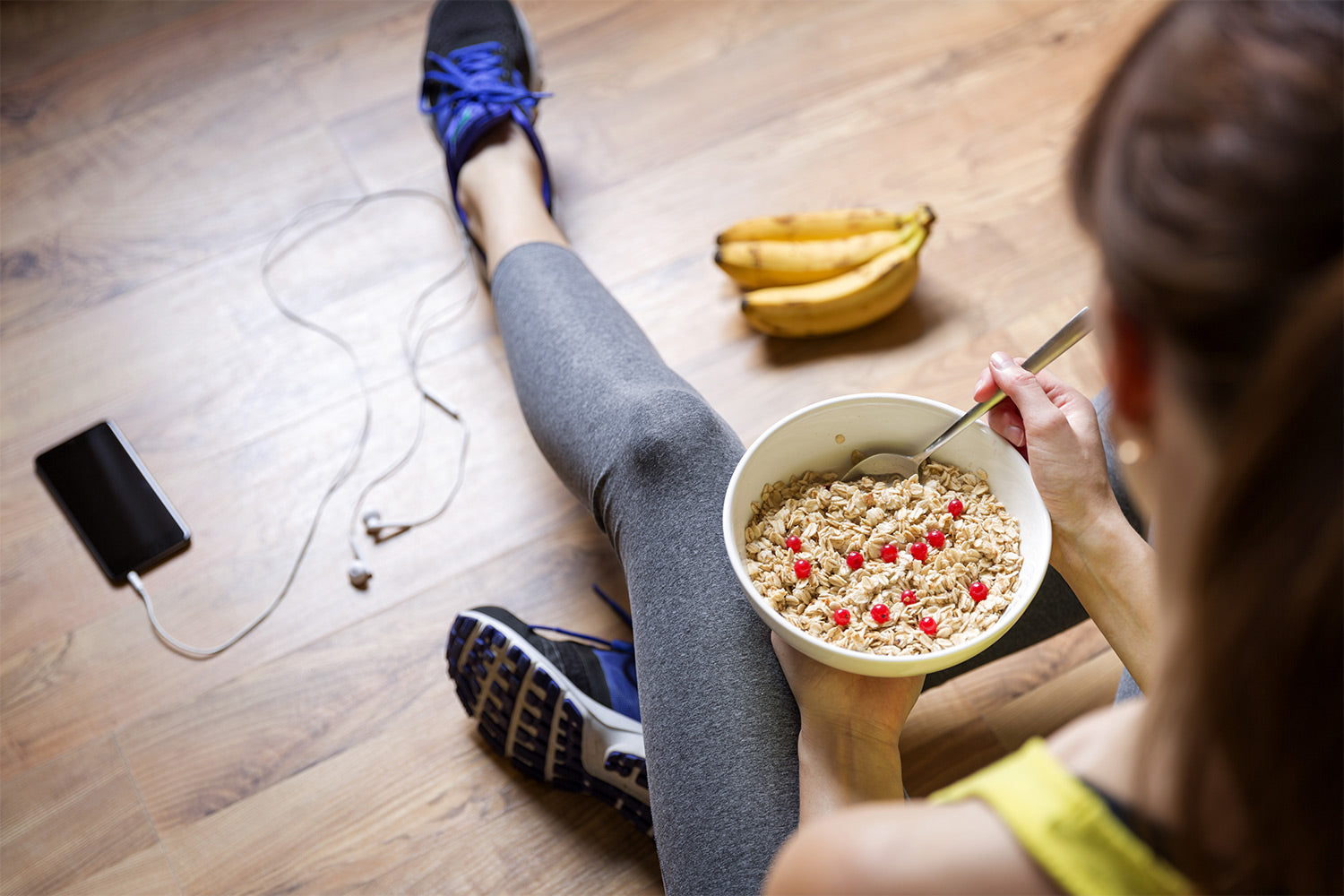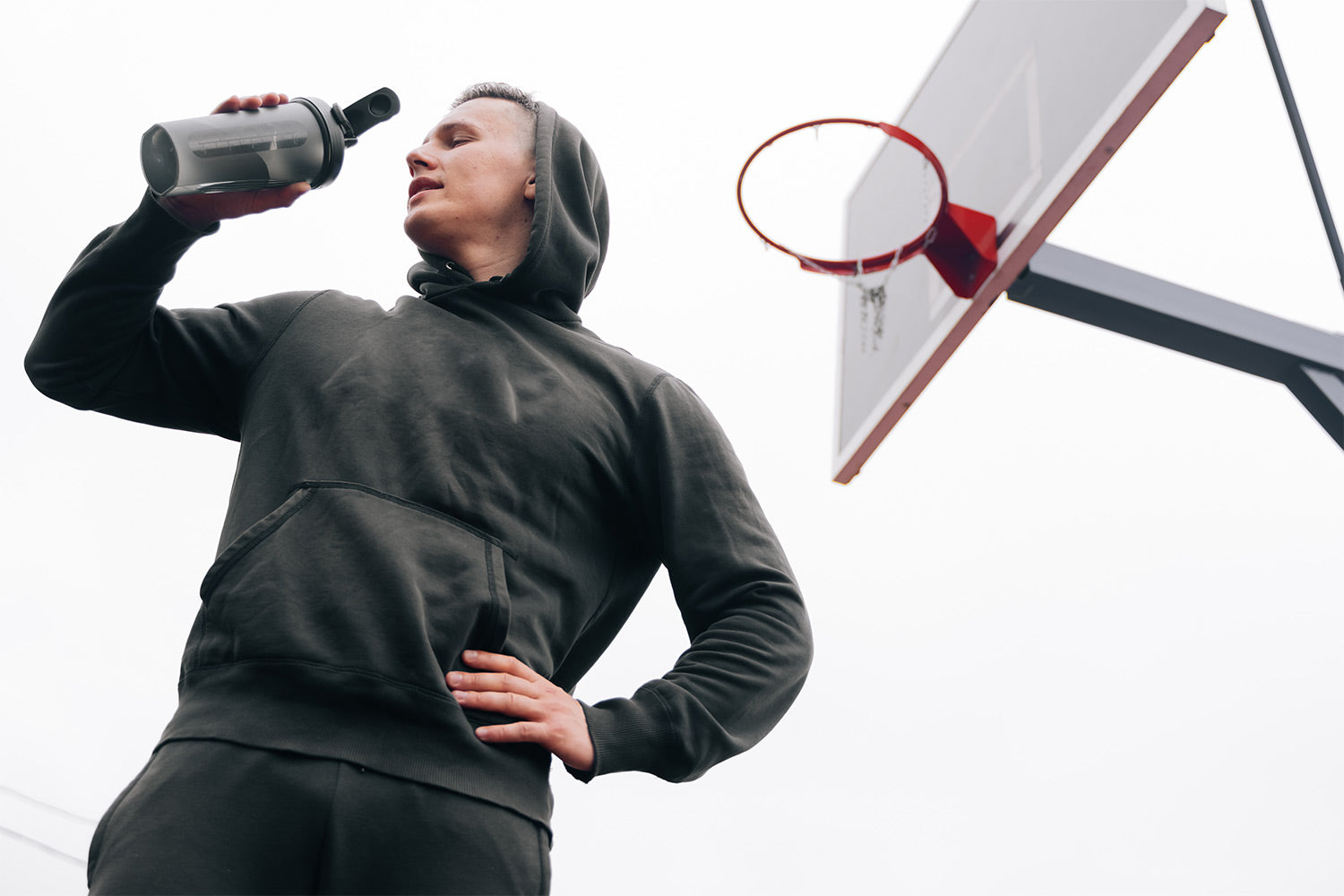Nutrition is one of the most important factors affecting your workout performance. But not only is what you eat important but when you eat it, too. Eating too soon before your workout can leave you feeling nauseous while eating too far in advance (or not at all) can hinder your performance.
Even though we’re all different, there are some general guidelines we can all follow when it comes to pre-workout nutrition. Keep reading to discover why it’s so important to eat before a workout, what you should eat before exercise, and, most importantly, when you should eat it.
Eating Before Exercise
In the world of nutrition and exercise science, we’re constantly exposed to new information, which makes it hard to figure out what you should do for yourself. Here are some questions you may have about pre-workout nutrition and the best solutions to them.
Aren’t Fasted Workouts Better?
This depends! Some studies show that training in a fasted state (before your first meal of the day) can tap into your fat stores, which can cause you to burn more body fat—as opposed to your body’s stored-up glucose.
However, this usually has a downside: Many people report feeling tired before they’ve had their first meal and don’t perform as well as they would after eating. This means fewer calories burned overall.
Plus, working out in a fasted state can cause you to feel ravenous after the workout, leading you to eat much more than you would have otherwise.
Can Eating Before a Workout Improve Performance?
Eating carbohydrates—as opposed to protein and fat, can seriously improve your workout performance.
Carbohydrates are the preferred fuel source for the brain and body during exercise since it’s the easiest to break down. During your workout, your body uses carbohydrates stored in your muscles as glycogen. This quickly breaks down into glucose and gets delivered to the muscles as a source of energy that powers intense workouts.
While researchers continue to investigate the effects of working out in a state of ketosis (where your body uses fat for fuel), it seems like carbohydrates are still your best friend for optimal exercise performance.
Does Eating Before a Workout Lead to Nausea?
Whether you feel nauseous during your workout depends on your metabolism, what you eat, and the intensity of your workout.
That said, nausea during a workout is definitely not uncommon. That’s because you need the energy to digest your food, which comes from your body directing blood flow towards your digestive tract. But when you start working out, the blood flow gets redirected towards your muscles instead.
Unfortunately, this leaves little oxygen for your digestive system, which is responsible for feelings of nausea. However, this can easily be avoided by eating fast-digesting food while staying away from too much of the hard-to-digest protein and fat.
But keep in mind that while fueling up before your workout is important, eating too much or too close to your workout may harm your performance.
How Long Should You Wait to Work Out After Eating?
Hopefully, it’s clear why you should eat before your workout. But to avoid nausea, vomiting, and cramping—in addition to getting the most energy out of your food—it’s important to time your pre-workout meals correctly.
In the first place, it’s essential to consider your body size, metabolic rate, and digestion. Some people digest food much more quickly than others, influencing how long you wait to eat in advance.
It’s also important to consider what you’re eating before your workout. If you’re eating a meal high in fat, protein, and fiber, then you’ll need to give yourself, at a minimum, one hour to rest and digest. However, a meal made up of mostly simple carbs—such as a fruit smoothie—can be digested in 30 minutes or less.
The ideal time to wait after eating is about two hours. This will allow you to eat a big meal that will fuel the most intense workouts. But if you don’t have as much time, then it’s totally fine to eat a smaller, easier-to-digest meal about 20 minutes before your workout. Just make sure to take notes of how you feel and make adjustments accordingly.
The Best Food To Eat Before a Workout
While larger meals will naturally give your body more fuel for exercise, eating a smaller meal can be more convenient. Whichever option you choose, make sure that most of the nutrients in your meal come from carbohydrates. In addition, try to go for simple carbs—these contain less fiber and are easier to break down.
While it’s not a bad idea to consume protein before your workout to help muscle-building, keep in mind that protein takes longer to digest. For this reason, it’s a good idea not to eat too much of it before you exercise.
It’s a good idea to consume at least ½ gram of carbohydrate per pound of body weight. For a 150-pound adult, this would be about 75 grams of carbs. In addition, it’s a good idea to include at least 20 grams of protein—especially if your workouts are intensive.
Here are some meal ideas for ideal workout nutrition:
- 1 cup oatmeal with a scoop of protein powder
- Greek yogurt with bananas, berries, and honey
- Two slices of whole-grain bread with high-protein peanut butter
- 1 cup of rice with a grilled chicken breast
And, of course, it’s just as important to pay attention to what you eat after your workout for optimum recovery.
Food Is Fuel
Eating before a workout is crucial for improving your performance. To avoid feeling nauseous, try to stick to eating easy-to-digest carbs at least twenty minutes before your workout. This will give you enough energy to crush even the most intense workouts.
Our Sources:
Exercise Training and Fasting: Current Insights | NCBI
Glycogen - An Overview | ScienceDirect Topics
Improvements in Exercise Performance: Effects of Carbohydrate Feedings and Diet | Journal of Applied Physiology




Leave a comment
All comments are moderated before being published.
This site is protected by hCaptcha and the hCaptcha Privacy Policy and Terms of Service apply.